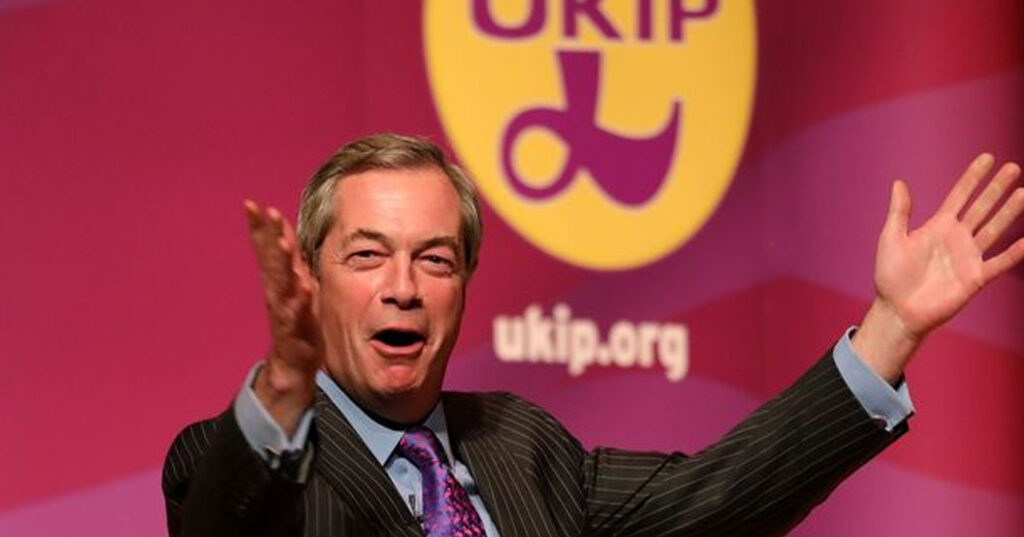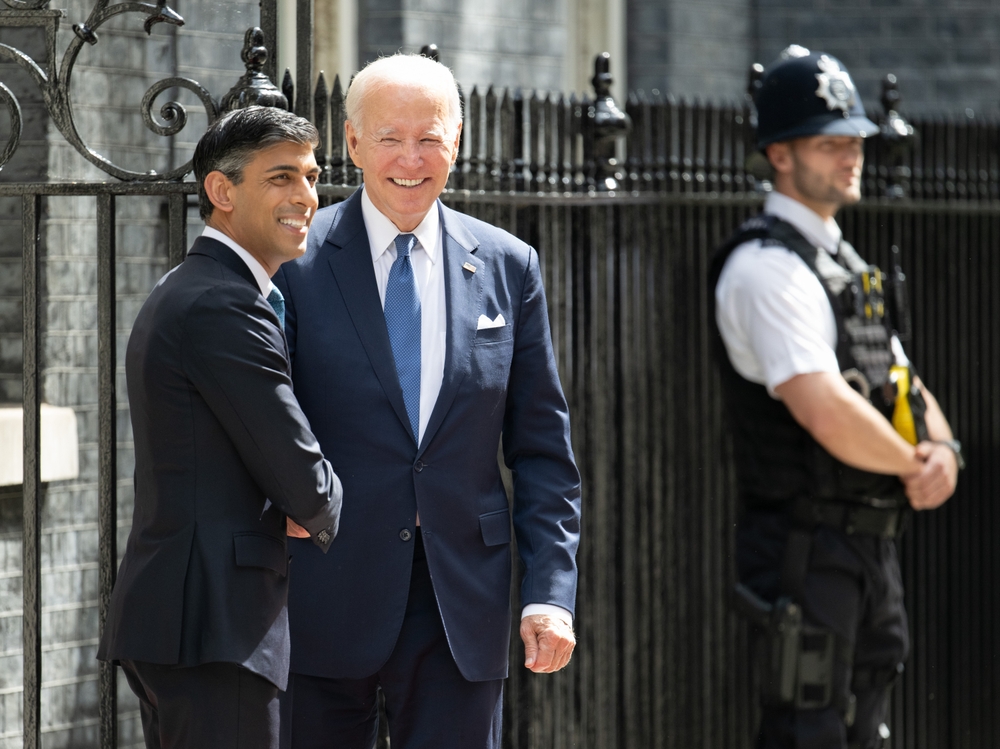
In the wake of this week’s Clegg-Farage Euro debate – the Division Two play-offs of British politics – the Conservatives in particular will be honing their pitch to former supporters tempted by UKIP.
Mr Farage says most UKIP voters are not ex-Tories, and this is true. But it is also true that they are more likely to be ex-Tories than anything else. For these people, the Conservatives have settled on the message that however much they may like what Nigel has to say, the better UKIP do next May the more likely it is that Her Majesty will have to ask Ed Miliband to form a government.
Of the available options, this is probably the right line to choose. Trying to out-UKIP UKIP would not just be fruitless but counterproductive, given that many wavering potential Tories are former Liberal Democrats. And while some new UKIP supporters are irreconcilable, the preferred election result for Conservative defectors overall is to see their old party back in government. Reminding them that there is only one way to achieve such an outcome must be the right approach.
So it may be better than the alternatives, but how effective is the “vote UKIP, get Labour” message likely to be? My recent Europe on Trial poll, with its bumper 20,000 sample, provided a good opportunity to look.
The most obvious thing to note is that of the 2,300 people who said in my poll that they would vote for Nigel Farage’s party, just over half (51%) said they disagreed with the statement “a vote for UKIP at the next general election makes the prospect of Ed Miliband becoming Prime Minister more likely”. A further 16% of UKIP voters said they didn’t know whether they agreed with this or not.
This can partly be accounted for by the fact that the statement is not true in every case. It depends where you are, and it depends what you might have done otherwise. Switching from Labour to UKIP in a Labour marginal, or switching to UKIP from anyone in a safe Labour seat, is clearly not going to make a Miliband premiership more likely.
But we who spend more time thinking about politics than is probably good for us should bear in mind another point. To most readers, the “vote UKIP, get Labour” argument is simply intuitive; it does not need explaining. But why should it be obvious to anyone else? That is not to say it can’t work, simply that it may need spelling out.
As I recorded in Minority Verdict, we faced a similar situation in the final weeks of the 2010 campaign, when the prospect of a hung parliament loomed. The problem was to communicate in Lib Dem-held marginals that only by electing Conservative MPs could people help bring about the change of government most of them wanted. Again, it seemed so obvious as hardly to need stating that the more Tories there were in the House of Commons, the greater the chance of a new administration. But this message was harder to get across than you might think – not least because the Lib Dems, with the straight-faced disingenuousness for which they are so justly renowned, argued that the outcome depended on whether Labour MPs were defeated, so what happened in Lib Dem seats could make no difference to the overall result. Piffle of the first order of course, but a lesson that electoral machinations are a more specialised subject than political activists might credit.
On top of that, people often said they simply did not want to think of elections in those terms, weighing the consequences and the odds: they wanted to vote for the candidate they wanted to vote for and that was an end of it.
But back to our poll. Just under a quarter (23%) of UKIP voters said they did believe their vote would make Miliband becoming PM more likely, but that this would not make any difference. Fair enough. These people evidently either think it makes no difference which of the two candidates ends up in Number 10, or indeed may actually prefer Miliband (it is not unheard of).
Which leaves just one in ten UKIP supporters both agreeing that a vote for the party increased the chances of a Miliband victory and saying this might make a difference to how they ended up casting their ballot.
There were some variations, depending on where they had come from. Slightly more (13%) of those who had switched from the Tories said this, as did 14% of the (rather fewer) who had been attracted from Labour. It was less likely to be a factor among those who had voted UKIP in 2010 (9%), and the (surprisingly numerous) switchers to UKIP from the Lib Dems (8%).
It may be that the true numbers are higher. Some people in the survey may have wanted to avoid seeming (if only to themselves) capricious and uninformed enough to switch their allegiance only seconds after stating it.
But if one in seven Tory-UKIP defectors might be persuaded to reconsider on the spot by this argument, that is not a failure. With marginal voters in marginal seats, the margins matter.


